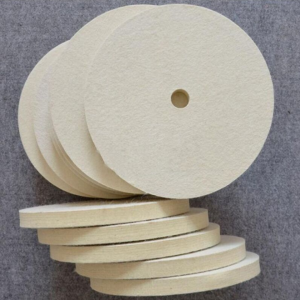In the digital age, wool felt wheel manufacturers are embracing digital customization to offer tailored solutions that meet the diverse and specific needs of their customers. This shift towards digitalization is not only revolutionizing the way wool felt wheels are produced but also enhancing the overall customer experience.
Digital customization begins with advanced 3D modeling and design software. Customers can now work closely with manufacturers to create virtual models of the wool felt wheels they need. They can specify details such as the size, shape, density of the wool fibers, and even the type of attachment mechanism. This level of customization was previously difficult to achieve with traditional manufacturing methods. For example, in the automotive customization industry, where different vehicles may require unique – sized wool felt wheels for specific polishing tasks, digital design allows manufacturers to quickly and accurately create wheels that fit the exact requirements of each project.
Once the digital design is finalized, manufacturers use computer – controlled manufacturing processes to produce the wool felt wheels. Computer – aided manufacturing (CAM) systems ensure that every wheel is produced with the highest level of precision. The machines can precisely control the carding, felting, and shaping processes based on the digital design, resulting in consistent quality and performance. This is especially important for industries that rely on standardized and repeatable polishing processes, such as the electronics manufacturing sector, where uniformity in surface finishing is crucial for the functionality of components.
Another aspect of digital customization is the ability to offer personalized branding and identification. Manufacturers can use digital printing technologies to add custom logos, labels, and product information directly onto the wool felt wheels. This not only helps businesses to promote their brand but also provides a means of product traceability and quality control. For example, a jewelry manufacturing company can have its logo printed on the wool felt wheels used for polishing its products, creating a sense of brand identity and exclusivity.
The adoption of digital customization also has implications for inventory management and supply chain efficiency. By producing wool felt wheels on – demand based on customer orders, manufacturers can reduce excess inventory and associated costs. Additionally, the digital process allows for faster turnaround times, enabling customers to receive their customized wheels more quickly. This is a significant advantage in industries where time – to – market is a critical factor.
As more wool felt wheel manufacturers embrace digital customization, the market is likely to become more competitive, with a greater focus on innovation and customer satisfaction. The ability to offer tailored solutions will not only attract new customers but also help manufacturers to build long – term relationships with existing clients, driving the growth and development of the wool felt wheel industry in the digital era.

Post time: Jun-10-2025
